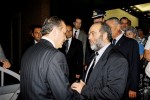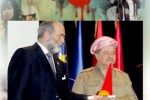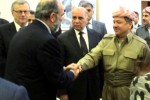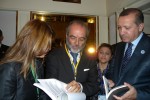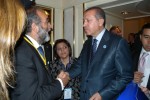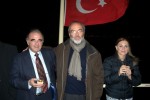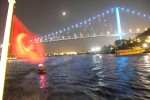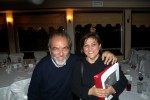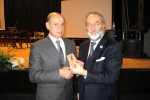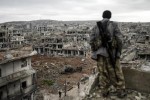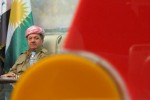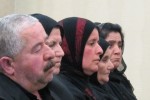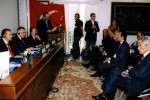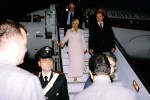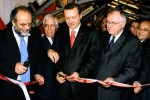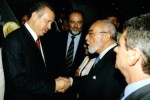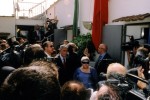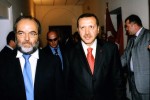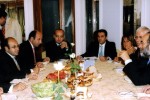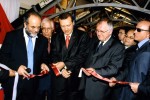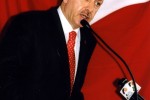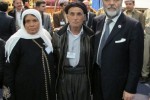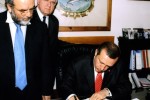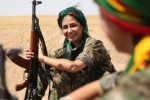MAIN EVENTS
|
15 October 2019
Iniziative (EN) -
Maison de la Paix (EN)
 Today an intense day of debate ends at the Fondazione Mediterraneo to take stock of what is happening in Turkey and, especially, to the Kurds.
Today an intense day of debate ends at the Fondazione Mediterraneo to take stock of what is happening in Turkey and, especially, to the Kurds.
We listened to many members of the International Committee and connected with Turkish and Kurdish intellectuals to learn about their thinking.
The result is discouraging: the main defendant at the global level is a political and government class unprepared, slovenly, devoted to miserable special interests and unaware of the Common Good and the Value of Life and Human Dignity.
"As women we are determined to fight until we achieve the victory of peace, freedom and justice": this is how Kurdish women in a book turn to the world, as they assist the advance of Turkish troops in their territory and try to stop them. They demand that the international community act to put an end to the "invasion and occupation of Turkey in northern Syria". They do this with a letter entitled "To all the women and peoples of the world who love freedom".
It is the testimony of the situation that is faced today by the Kurds who live in northern Syria, since the territory where they live is hostage to the offensive of Turkey.
The text reads:
"We are writing to you in the midst of the war in Northeast Syria, forced by the Turkish state into our native land. We have been resisting for three days under the bombing of fighter planes and Turkish tanks. We have witnessed how mothers in their neighborhoods are targeted by bombing when they leave home to get bread for their families. We saw how the explosion of a NATO grenade tore Sara's seven-year-old leg to shreds, and killed her brother Mohammed by twelve."
The testimonies do not stop there. The document reads about the air attacks that are destroying the villages, the people who are forced to flee, but also the resistance, without discounts, that the Kurds are putting in place. So the appeal to the international community, to take action to stop Turkey. Kurdish women have compiled a series of requests, including a stop to arms sales. A measure that some EU countries have already put in place.
These are the interventions required:
- End of the invasion and occupation of Turkey in northern Syria.
- Establishment of a No-Fly zone for the protection of the life of the population in northern and eastern Syria.
- Prevent further war crimes and ethnic cleansing by the Turkish armed forces.
- Guarantee the condemnation of all war criminals under international law.
- Stop the sale of weapons in Turkey.
- Implement economic and political sanctions against Turkey.
- Take immediate action to resolve the political crisis in Syria with the participation and representation of all the different national, cultural and religious communities in Syria
At the end of this day I feel a profound discouragement.
For 30 years I have been committed to promoting dialogue and peace in the Euro-Mediterranean region and in the world with passion and dedication.
At the beginning of this commitment, we advanced a proposal that was then considered unrealizable: to integrate Morocco (to the west) and Turkey (to the east) into the European Union in order to ensure peace in areas where war had produced innocent victims. Alongside this proposal, the constitution of the "United States of Europe".
In many articles that I have published in various newspapers since 1991, I have always supported the inevitability of this process.
I have supported him in various meetings with President Erdogan since 2004. Analyzing the speeches, the commitments and then the events, we understand that a more careful dedication to these problems could have produced a positive outcome in the region.
In 2005, during a visit to the Mediterranean Foundation, Erdogan was accompanied by 16 ministers and asked for "help" to accelerate the process of Turkey's accession to Europe.
We allowed ourselves to draw up a set of guidelines: nothing proposed was carried out, despite the personal requests made in subsequent meetings until recently.
Same thing during our travels in Iraqi Kurdistan, with meetings with President Barzani, the various ministers and policy makers too often based only on hatred and revenge.
I conclude this day by reviewing some photographs of the aforementioned meetings and re-reading some published articles.






